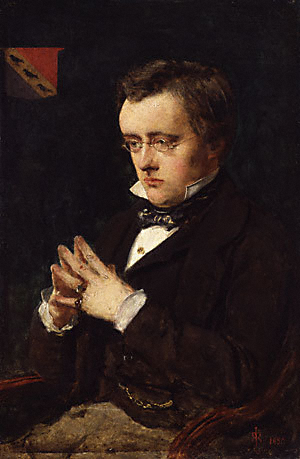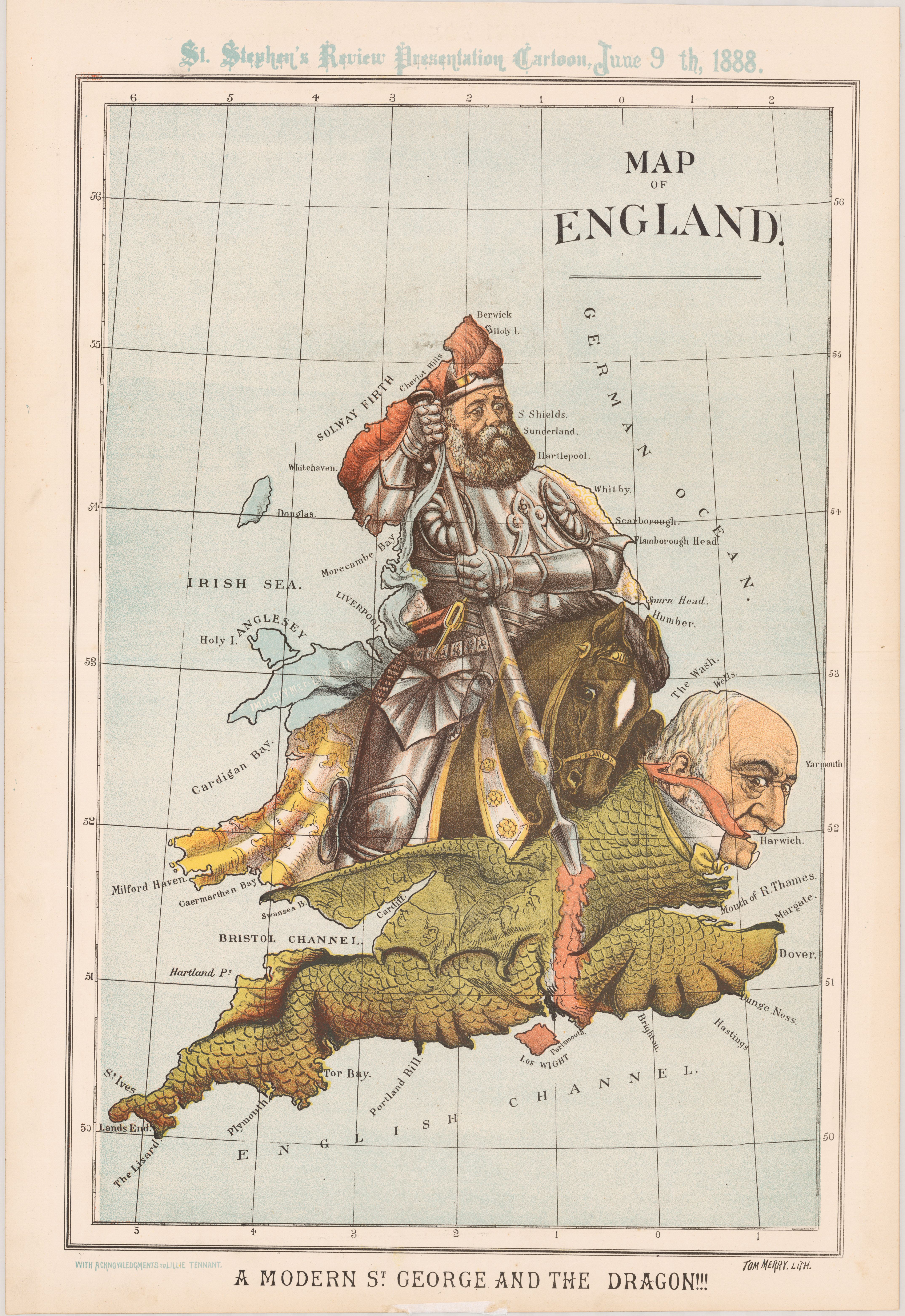|
Blind Love (novel)
''Blind Love'' was an unfinished novel by Wilkie Collins, which he left behind on his death in 1889. It was completed by historian and novelist Sir Walter Besant. Collins's novel had already begun serialization in ''The Illustrated London News'', even though the author had not yet completed it. (It ran from 6 July, 1889, to 28 December of that year.) When it was published in book form on 1890, the volume included Besant's preface explaining the circumstances of the collaboration. Collins had started writing the novel in 1887, when newspapers were full of stories about Fenian violence in the wake of the previous year's defeat of the First Irish Home Rule Bill. Collins frequented Ye Olde Cheshire Cheese off London's Fleet Street and borrowed some traits for his male protagonist from John O'Connor Power John O'Connor Power (13 February 1846 – 21 February 1919) was an Irish Fenian and a Home Rule League and Irish Parliamentary Party politician and as MP in the House of Commons ... [...More Info...] [...Related Items...] OR: [Wikipedia] [Google] [Baidu] |
Wilkie Collins
William Wilkie Collins (8 January 1824 – 23 September 1889) was an English novelist and playwright known especially for ''The Woman in White (novel), The Woman in White'' (1859), a mystery novel and early "sensation novel", and for ''The Moonstone'' (1868), which has been proposed as the first modern English detective novel. Born to the London painter William Collins (painter), William Collins and his wife, Harriet Geddes, he moved with them to Italy when he was twelve, living there and in France for two years, learning both Italian language, Italian and French language, French. He worked initially as a tea merchant. After ''Antonina'', his first novel, appeared in 1850, Collins met Charles Dickens, who became a friend and mentor. Some of his work appeared in Dickens's journals ''Household Words'' and ''All the Year Round''. They also collaborated on drama and fiction. Collins gained financial stability and an international following by the 1860s, but became addicted to the op ... [...More Info...] [...Related Items...] OR: [Wikipedia] [Google] [Baidu] |
Walter Besant
Sir Walter Besant (14 August 1836 – 9 June 1901) was an English novelist and historian. William Henry Besant was his brother, and another brother, Frank, was the husband of Annie Besant. Early life and education The son of wine merchant William Besant (1800–1879), he was born at Portsmouth, Hampshire and attended school at St Paul's, Southsea, Stockwell Grammar, London and King's College London. In 1855, he was admitted as a pensioner to Christ's College, Cambridge, where he graduated in 1859 as 18th wrangler. After a year as Mathematical Master at Rossall School, Fleetwood, Lancashire, and a year at Leamington College, he spent six years as professor of mathematics at the Royal College, British Mauritius. A decline in health compelled him to resign, and he returned to England and settled in London in 1867. From 1868 to 1885, he held the position of Secretary to the Palestine Exploration Fund. In 1871, he was admitted to Lincoln's Inn. In 1874, Besant married Mary Gar ... [...More Info...] [...Related Items...] OR: [Wikipedia] [Google] [Baidu] |
The Illustrated London News
''The Illustrated London News'' appeared first on Saturday 14 May 1842, as the world's first illustrated weekly news magazine. Founded by Herbert Ingram, it appeared weekly until 1971, then less frequently thereafter, and ceased publication in 2003. The company continues today as Illustrated London News Ltd, a publishing, content, and digital agency in London, which holds the publication and business archives of the magazine. History 1842–1860: Herbert Ingram ''The Illustrated London News'' founder Herbert Ingram was born in Boston, Lincolnshire, in 1811, and opened a printing, newsagent, and bookselling business in Nottingham around 1834 in partnership with his brother-in-law, Nathaniel Cooke.Isabel Bailey"Ingram, Herbert (1811–1860)" ''Oxford Dictionary of National Biography'', Oxford University Press, 2004 accessed 17 September 2014] As a newsagent, Ingram was struck by the reliable increase in newspaper sales when they featured pictures and shocking stories. Ingram beg ... [...More Info...] [...Related Items...] OR: [Wikipedia] [Google] [Baidu] |
Fenian
The word ''Fenian'' () served as an umbrella term for the Irish Republican Brotherhood (IRB) and their affiliate in the United States, the Fenian Brotherhood, secret political organisations in the late 19th and early 20th centuries dedicated to the establishment of an independent Irish Republic. In 1867 they sought to coordinate Fenian raids, raids into Canada from the United States with a Fenian Rising, rising in Ireland. In the Easter Rising, 1916 Easter Rising and the 1919–1921 Irish War of Independence, the IRB led the republican struggle. Fenianism Fenianism ( ga, Fíníneachas), according to O'Mahony, embodied two principles: firstly, that Ireland had a natural right to independence, and secondly, that this right could be won only by an armed revolution. The name originated with the Fianna of Irish mythology – groups of legendary warrior-bands associated with Fionn mac Cumhail. Mythological tales of the Fianna became known as the Fenian Cycle. In the 1860s, oppone ... [...More Info...] [...Related Items...] OR: [Wikipedia] [Google] [Baidu] |
First Irish Home Rule Bill
The Government of Ireland Bill 1886, commonly known as the First Home Rule Bill, was the first major attempt made by a British government to enact a law creating home rule for part of the United Kingdom of Great Britain and Ireland. It was introduced on 8 April 1886 by Liberal Prime Minister William Gladstone to create a devolved assembly for Ireland which would govern Ireland in specified areas. The Irish Parliamentary Party under Charles Stewart Parnell had been campaigning for home rule for Ireland since the 1870s. The bill, like his Irish Land Act 1870, was very much the work of Gladstone, who excluded both the Irish MPs and his own ministers from participation in the drafting. Following the Purchase of Land (Ireland) Act 1885 it was to be introduced alongside a new Land Purchase Bill to reform tenant rights, but the latter was abandoned. Alvin Jackson, ''Home Rule: An Irish History 1800—2000'' Key aspects The key aspects of the 1886 bill were: Legislative * A unicamer ... [...More Info...] [...Related Items...] OR: [Wikipedia] [Google] [Baidu] |
Ye Olde Cheshire Cheese
Ye Olde Cheshire Cheese is a Grade II listed public house at 145 Fleet Street, on Wine Office Court, City of London. Rebuilt shortly after the Great Fire of 1666, the pub is known for its literary associations, with its regular patrons having included Charles Dickens, G.K. Chesterton and Mark Twain. The pub is on the Campaign for Real Ale's National Inventory of Historic Pub Interiors. Age Ye Olde Cheshire Cheese is one of a number of pubs in London to have been rebuilt shortly after the Great Fire of 1666. There has been a pub at this location since 1538. While there are several older pubs which have survived because they were beyond the reach of the fire, or like The Tipperary on the opposite side of Fleet Street because they were made of stone, this pub continues to attract interest due to the lack of natural lighting inside. Some of the interior wood panelling is nineteenth century, some older, perhaps original. The vaulted cellars are thought to belong to a 13th-centu ... [...More Info...] [...Related Items...] OR: [Wikipedia] [Google] [Baidu] |
John O'Connor Power
John O'Connor Power (13 February 1846 – 21 February 1919) was an Irish Fenian and a Home Rule League and Irish Parliamentary Party politician and as MP in the House of Commons of the United Kingdom of Great Britain and Ireland represented Mayo from June 1874 to 1885. From 1881, he practised as a barrister specialising in criminal law and campaigning for penal reform. Early radical years He was born in Clashaganny, County Roscommon and was the third son of Patrick Power from Ballinasloe and his wife Mary O'Connor of County Roscommon, during the Great Famine years. He contracted smallpox and spent some time in the Ballinasloe Fever hospital, which was housed in the workhouse. On the death of his parents he was raised by Catherine O'Connor Duffield in her home in Society Street. At fifteen years of age, he went to live with relatives in Lancashire where he recruited for the Irish Republican Brotherhood and took up a trade in house painting. It was here that he first met Mic ... [...More Info...] [...Related Items...] OR: [Wikipedia] [Google] [Baidu] |
1889 British Novels
Events January–March * January 1 ** The total solar eclipse of January 1, 1889 is seen over parts of California and Nevada. ** Paiute spiritual leader Wovoka experiences a vision, leading to the start of the Ghost Dance movement in the Dakotas. * January 4 Events Pre-1600 *46 BC – Julius Caesar fights Titus Labienus in the Battle of Ruspina. * 871 – Battle of Reading: Æthelred of Wessex and his brother Alfred are defeated by a Danish invasion army. 1601–1900 *1649 – Engli ... – An Act to Regulate Appointments in the Marine Hospital Service of the United States is signed by President Grover Cleveland. It establishes a Commissioned Corps of officers, as a predecessor to the modern-day U.S. Public Health Service Commissioned Corps. * January 5 – Preston North End F.C. is declared the winner of the The Football League 1888–89, inaugural Football League in England. * January 8 – Herman Hollerith receives a patent for his electric tabulat ... [...More Info...] [...Related Items...] OR: [Wikipedia] [Google] [Baidu] |
Novels By Wilkie Collins
A novel is a relatively long work of narrative fiction, typically written in prose and published as a book. The present English word for a long work of prose fiction derives from the for "new", "news", or "short story of something new", itself from the la, novella, a singular noun use of the neuter plural of ''novellus'', diminutive of ''novus'', meaning "new". Some novelists, including Nathaniel Hawthorne, Herman Melville, Ann Radcliffe, John Cowper Powys, preferred the term "romance" to describe their novels. According to Margaret Doody, the novel has "a continuous and comprehensive history of about two thousand years", with its origins in the Ancient Greek and Roman novel, in Chivalric romance, and in the tradition of the Italian renaissance novella.Margaret Anne Doody''The True Story of the Novel'' New Brunswick, NJ: Rutgers University Press, 1996, rept. 1997, p. 1. Retrieved 25 April 2014. The ancient romance form was revived by Romanticism, especially the historica ... [...More Info...] [...Related Items...] OR: [Wikipedia] [Google] [Baidu] |





.jpg)


